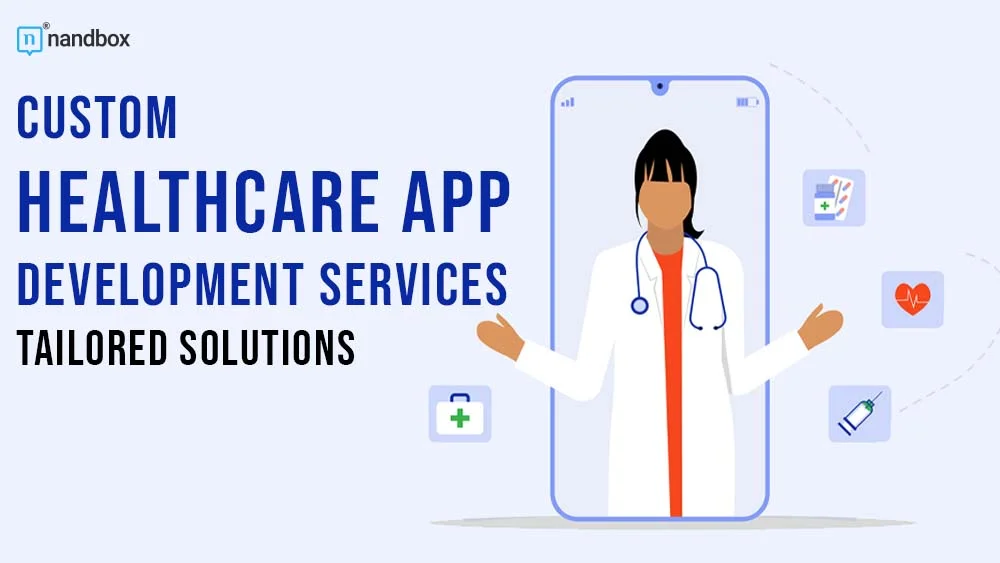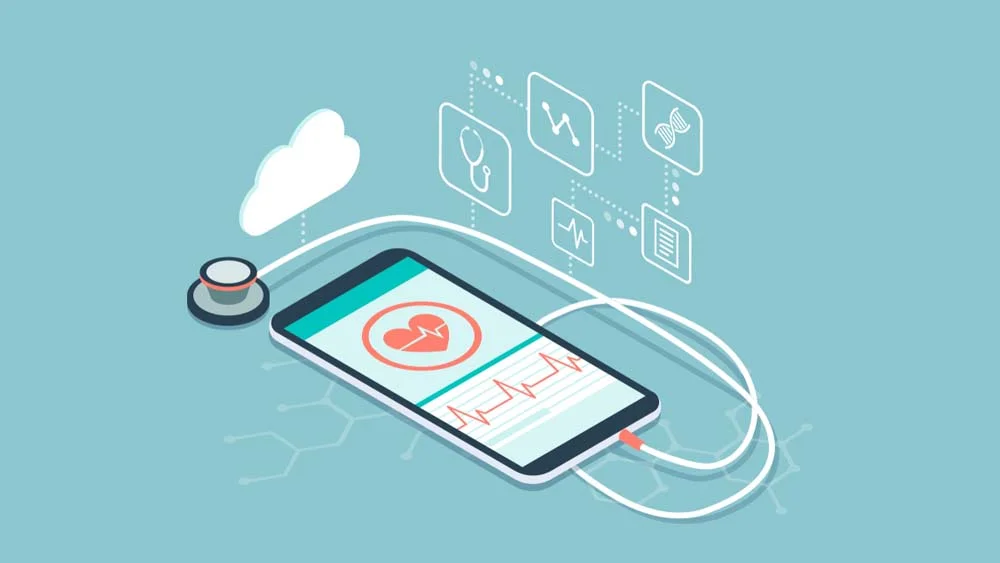In today’s rapidly evolving healthcare landscape, the demand for personalized healthcare services is at an all-time high. Custom healthcare app development services are stepping up to meet this need, offering tailored solutions that cater specifically to the unique demands of healthcare providers and patients alike. This article explores how these bespoke applications are transforming the healthcare industry.
Understanding Custom Healthcare Apps
These applications enhance various aspects of healthcare management, including patient scheduling, medical record access, remote monitoring, and doctor reputation management. By focusing on specific requirements and integrating seamlessly with existing healthcare systems, these apps improve efficiency and patient outcomes. They also support real-time communication and data exchange, ensuring that healthcare providers can make informed decisions quickly. Overall, custom healthcare apps represent a significant advancement in the digital transformation of healthcare.
Benefits of Custom Healthcare Apps
Custom healthcare apps offer a multitude of benefits that significantly enhance both patient care and the operational efficiency of healthcare providers. Firstly, these apps can streamline processes such as appointment scheduling and patient registration, reducing administrative workload and increasing patient satisfaction. They also provide healthcare professionals with easy access to critical patient data, such as medical histories and test results, which can improve the accuracy and speed of diagnosis and treatment. Moreover, custom apps facilitate better patient engagement by allowing patients to monitor their health, access educational resources, and communicate directly with their healthcare providers. This leads to improved health outcomes and patient adherence to treatment plans. Additionally, with features like data encryption and secure channels, these apps ensure high standards of data privacy and security, crucial in maintaining patient trust and complying with healthcare regulations.
Key Features of Effective Healthcare Apps
User-friendliness is paramount; an intuitive interface ensures that users of all ages and tech-savviness can navigate the app without confusion, making healthcare more accessible. Security features are also critical, as they protect sensitive patient data from unauthorized access, with encryption and secure authentication processes being standard. Real-time functionality is another essential feature, allowing for the continuous monitoring of patient health and immediate updates to medical records, which can be crucial in emergency situations. Additionally, interoperability with other healthcare systems ensures that the app can integrate seamlessly with existing hospital and clinic software, facilitating a smoother workflow and reducing errors. Finally, personalized patient communication tools, such as push notifications for medication reminders and appointments, enhance patient engagement and compliance with treatment protocols.
Developing Your Healthcare App
Custom healthcare app development services involve a strategic and detailed process to ensure it meets the specific needs of the healthcare environment it serve. The first step is to conduct thorough research to understand the unique challenges and requirements of the target users, whether they are healthcare professionals, patients, or administrative staff. This phase might involve reviewing resources such as healthcare app development to gain insights into the specific needs and solutions in the healthcare industry. Based on this research, defining clear objectives for the app is crucial, such as improving patient engagement, streamlining clinical workflows, or enhancing diagnostic accuracy.
The next phase involves designing the user interface and experience, focusing on simplicity and accessibility to accommodate users of varying technological expertise. Technical development follows, where features like secure data storage, real-time updates, and integration capabilities with existing healthcare systems are implemented. Finally, rigorous testing is essential to ensure the app functions correctly across different devices and platforms, and complies with all relevant health regulations and privacy standards.
Challenges in Healthcare App Development
Developing healthcare apps comes with a unique set of challenges that must be carefully navigated to ensure success. One of the primary obstacles is compliance with stringent healthcare regulations such as HIPAA in the United States, which governs the privacy and security of patient data. Ensuring data security is another major challenge, as healthcare apps handle sensitive information that is a prime target for cyberattacks. Developers must implement robust security measures like encryption and secure authentication to protect this data.
Interoperability is another significant hurdle, as the app must seamlessly integrate with various existing healthcare IT systems, which often use different standards and technologies. The user experience must also be prioritized, designing interfaces that are accessible to users of all ages and levels of tech-savviness, which can be difficult given the complex nature of medical data.
Moreover, maintaining the accuracy of medical information within the app and ensuring it delivers reliable and timely data to both patients and healthcare providers is crucial. Finally, the need for ongoing updates and maintenance to adapt to evolving medical practices and technological advancements presents a continuous challenge.
Choosing the Right Development Partner
When selecting a partner, it’s important to consider their experience and track record in developing healthcare applications. A good development partner should have a deep understanding of the healthcare industry’s compliance and regulatory requirements, such as HIPAA in the U.S., to ensure the app meets all legal standards.
It’s also beneficial to review case studies or testimonials from previous clients to gauge the effectiveness of their solutions in real-world healthcare settings. Technical proficiency in secure coding practices, data encryption, and user interface design are essential skills your partner should possess. Lastly, effective communication and a clear project management methodology are key to ensuring that the development process is smooth and that the final product aligns with your goals.
Conclusion
Custom healthcare app development services present a promising avenue for enhancing the efficiency and effectiveness of healthcare services. These apps are tailored to meet the specific needs of healthcare providers and patients, offering solutions that streamline operations, improve patient engagement, and ensure high standards of care. However, the journey to creating a successful healthcare app involves overcoming several challenges, including strict regulatory compliance, ensuring robust security, and achieving seamless integration with existing systems. Choosing the right development partner with expertise in healthcare technology and a proven track record is essential. As healthcare continues to evolve with technological advancements, custom apps will play a pivotal role in shaping the future of patient care. By focusing on user-centric design and continuous innovation, healthcare apps can greatly contribute to a more efficient and responsive healthcare system.





